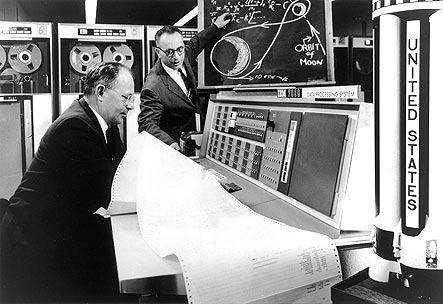Like all places where pioneers land, someday the Internet will be relatively civilized. Not completely, but relatively. I’m not talking about mean comments and trolling but about the larger issues of control. That’s both a good and bad thing. You certainly don’t want cybercrimes and predatory behavior, but the unfettered, decentralized, anonymous rush of the new medium was exhilarating and led to all kinds of insurgent creativity. Bruce Schneier, the Internet security expert, just published an article for the Atlantic about the struggle for power over the Internet, which he sees as tilting in favor of corporations and governments over individuals. It’s hard to argue with his scorekeeping. The opening:
“We’re in the middle of an epic battle for power in cyberspace. On one side are the traditional, organized, institutional powers such as governments and large multinational corporations. On the other are the distributed and nimble: grassroots movements, dissident groups, hackers, and criminals. Initially, the Internet empowered the second side. It gave them a place to coordinate and communicate efficiently, and made them seem unbeatable. But now, the more traditional institutional powers are winning, and winning big. How these two side fare in the long term, and the fate of the rest of us who don’t fall into either group, is an open question—and one vitally important to the future of the Internet.
In the Internet’s early days, there was a lot of talk about its ‘natural laws’—how it would upend traditional power blocks, empower the masses, and spread freedom throughout the world. The international nature of the Internet bypassed circumvented national laws. Anonymity was easy. Censorship was impossible. Police were clueless about cybercrime. And bigger changes seemed inevitable. Digital cash would undermine national sovereignty. Citizen journalism would topple traditional media, corporate PR, and political parties. Easy digital copying would destroy the traditional movie and music industries. Web marketing would allow even the smallest companies to compete against corporate giants. It really would be a new world order.
This was a utopian vision, but some of it did come to pass. Internet marketing has transformed commerce. The entertainment industries have been transformed by things like MySpace and YouTube, and are now more open to outsiders. Mass media has changed dramatically, and some of the most influential people in the media have come from the blogging world. There are new ways to organize politically and run elections. Crowdfunding has made tens of thousands of projects possible to finance, and crowdsourcing made more types of projects possible. Facebook and Twitter really did help topple governments.
But that is just one side of the Internet’s disruptive character. The Internet has emboldened traditional power as well.”
Tags: Bruce Schneier

